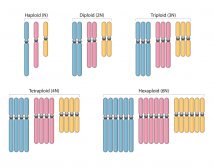Definition
noun, plural: biological magnification
The increasing concentration of a particular substance (e.g. toxin) as it moves up across the trophic levels in a food chain
Supplement
Biological magnification refers to the concentration of a particular substance (such as toxins) being magnified within the organism at each increasing level in a food chain. For instance, a pesticide, which is a toxic chemical, finds its way into the food chain as it is consumed by an animal from one trophic level to another. The concentration of this toxic chemical progressively increases when a plant is treated with pesticide and then eaten by an herbivore. The herbivore, in turn, is eaten by a carnivore, which in turn is eaten by an animal in the higher trophic level. The toxic substance tends to become concentrated in tissues or internal organs over time and therefore when consumed tends to magnify across trophic levels, manifesting biological magnification. Certain substances tend to magnify its concentration because they are persistent substances. They are hardly broken down by natural, environmental means. Within organisms, they are very slowly metabolized or excreted out.
Biological magnification is therefore the manifestation of toxin build up in a food chain. It delineates that the amount of toxin increases as the trophic level increases. Thus, predators tend to have higher toxins than their prey.
Synonym(s):
- biomagnification
- bioamplification
See also:







